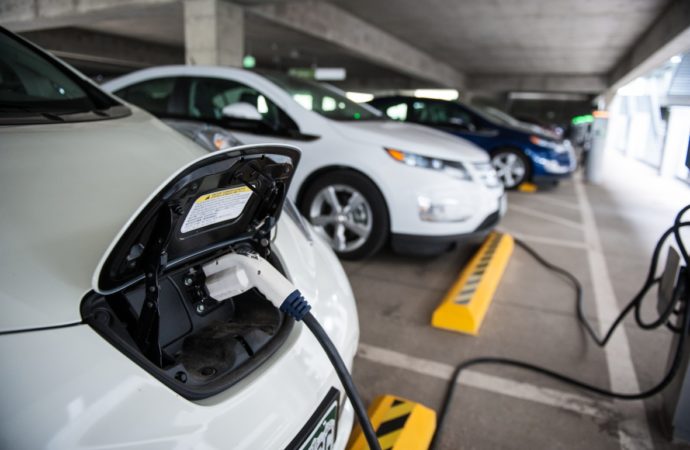The Polis administration intends, by hook or by crook, to see the electric vehicle industry succeed.
Last Friday, unelected regulators on the Air Quality Control Commission (AQCC) voted to adopt the so-called Colorado Clean Cars standard. The new regulations, which would more aptly be named the California-lite Clean Cars standard, largely replicate the California Air Resources Board’s rules requiring auto dealers to dramatically increase the number of electric vehicles (EVs) they offer for sale each year—though they stop short of adopting the Golden State’s 2035 gas vehicle ban.
Instead, in a move that would make even the old central planners in Moscow blush, the eight-member commission was evidently able to calculate to the exact percentage how many EVs car dealers ought to sell and how many drivers should be in the market for.
According to the commission:
The Colorado Clean Cars standard:
- Directs vehicle manufacturers to continue making and selling more zero-emission light duty vehicles beginning with model year 2027, and increasing every year through 2032. Zero-emission options include battery-electric, plug-in hybrid electric, and fuel cell electric vehicles.
- Directs vehicle manufacturers to ensure 82% of new light duty vehicles sold in Colorado are electric by model year 2032. This will support Colorado’s goal of nearly one million electric vehicles on the road in Colorado by 2030.
- Establishes more protective standards for volatile organic compounds and nitrogen oxides emissions from conventional passenger vehicles. These pollutants endanger human health and interact with heat and sunlight to form harmful ground-level ozone pollution.
- Reduces greenhouse gas emissions such as carbon dioxide that cause climate change. This will help Colorado meet its goal of achieving net-zero greenhouse gas emissions by 2050.
In an extra Orwellian twist, the AQCC claims its new rule to artificially reduce the supply of one type of vehicle in favor of a relatively unproven and more expensive technological newcomer actually “protects consumer choice” and “saves people money.”
The problem with that formulation, aside from its inherent rhetorical sleight of hand, is that consumers thus far have chosen—just not the way the Polis administration wishes. Despite local, state, and federal subsidies and public pressure campaigns meant to induce prospective buyers, unsold EVs are beginning to pile up on dealer lots.
That’s because electric vehicles, despite some of their virtues, still cost about $10,000 more on average than comparable gas-powered options and are yet to be supported by a functional public charging network at any kind of scale. On the production side, major manufacturers like Ford and start-ups like Lucid and Rivian are currently losing billions of dollars per year selling EVs. Until the business model is worked out (if it ever is), it’s hard to see how either side of the transaction is set to save money under Colorado’s plan.
If the benchmarks of 82% by the year 2032 strike you as strange, that’s because they should. They were chosen to lend a veneer of precise calculation to what amounts to bureaucratic wish-casting about the future of climate-centric transportation policy. The Air Quality Control Commissioners, well-intentioned as they may be, are no more immune to what Friedrich Hayek called “the knowledge problem” than any other would-be economic micromanager.
Hayek’s great insight was that no one person (or governing body) could possibly possess all of the requisite knowledge and information needed to efficiently allocate resources or plan economic outcomes without unintended consequences in a complex society. Instead, he argued that knowledge is dispersed among the millions of rational individuals in a society interacting with one another each day and that it is effectively communicated through market price signals.
Should electric vehicles make up 82% of all car sales in the next decade? Maybe. Maybe not.
If they demonstrate their reliability, affordability, and value to consumers at scale, then it is entirely possible. On the other hand, ongoing issues with supply chains, charging infrastructure, and relative unaffordability compared to gasoline cars could prove to be enduring issues that significantly affect consumer decision-making. The point is that the Air Quality Control Commission does not know because nobody knows. The global vehicle market is too complex, with too many dynamic variables at play, for any one governing body to manage its progress from on high.
State regulators cannot overcome “the knowledge problem” no matter how virtuous their motivations might be.









